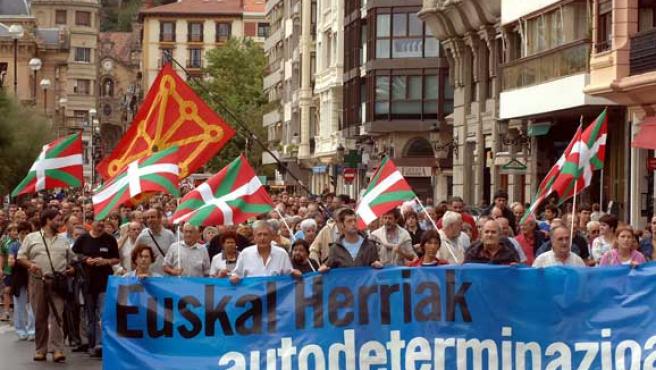SELF-DETERMINATION IN THE INTERNATIONAL LEGAL ORDER
We frequently read contradictory opinions on the resolutions of the United Nations regarding self-determination. Therefore, in this article we analyze the reasons that may lie behind these different opinions, and in doing so, we note that the documents that the United Nations has made public are often not coherent. For example, it is true that in some texts the UN says that the right of self-determination is applicable to the colonies, but in other texts it does not mention the colonies. Let’s look at the main UN resolutions on this topic:
1.- Resolution 1514 of 1960: “The submission of peoples to foreign domination, subordination and exploitation supposes the denial of fundamental human rights, is contrary to the United Nations Charter and questions the cause of peace and world cooperation” .
This resolution solemnly proclaims that any form of colonialism must end immediately.
The entire resolution is in this link:
https://www.un.org/ga/search/view_doc.asp?symbol=A/RES/1514(XV)
2.- Resolution 1541, of the year 1960: This resolution says that the territories geographically separated from the People that administers them have the right to self-determination, and that they are different in their ethnic and cultural manifestations from said People.
It seems that the so-called “salt water principle” is what determines the right to self-determination. In other words, there must be a sea that separates the colony from the metropolis (although that does not apply in the case of the Canary Islands, Madeira or Corsica, for example).
The entire resolution is in this link:
https://en.wikisource.org/wiki/United_Nations_General_Assembly_Resolution_1541
3.- Another very important document referring to the sovereignty of the Peoples is the International Covenant on Civil and Political Rights (ICCPR) of the UN, from 1966. The first article of Part One reads as follows:
Article 1:
a) “All peoples have the right of self-determination. By virtue of that right they freely determine their political status and freely pursue their economic, social and cultural development.”
b) “All peoples may, for their own ends, freely dispose of their natural wealth and resources without prejudice to any obligations arising out of international economic co-operation, based upon the principle of mutual benefit, and international law. In no case may a people be deprived of its own means of subsistence.”
c) “The States Parties to the present Covenant, including those having responsibility for the administration of Non-Self-Governing and Trust Territories, shall promote the realization of the right of self-determination, and shall respect that right, in conformity with the provisions of the Charter of the United Nations.”
It is true, as we have seen, that resolution 1541 of 1960 says that the Peoples have the right to self-determination according to two criteria: A) when they have ethnic and cultural singularities, and B) when there is a geographical separation between the colony and the metropolis. But the first article in the International Covenant on Civil and Political Rights makes no mention of those two criteria.
It should be noted that the Spanish State ratified the 1966 International Covenant on Civil and Political Rights in 1977, and incorporated it into its “Official State Gazette” on April 30, 1977. And also the Spanish Constitution, through its articles 10 and 96 assumed that UN resolution and included it in its legal system.
4.- Resolution 2625 of the year 1970 (October 24, 1970):
a) “In accordance with the principle of equal rights and free determination of the Peoples, contained in the Charter, all Peoples have the right to freely determine their political condition and their economic, social and cultural development without external intervention. And every State has the obligation to respect this right in accordance with the provisions of the Charter “
b) “The establishment of a sovereign and independent State, the free association or integration with an independent State (note: this allowed the process of union of the two Germanies), or any other political condition freely determined by a People, are ways of making effective the self-determination of that People”.
c) “No State should use measures of force that deprive the Peoples of the right to self-determination, freedom and independence. In acts and resistance that oppose these measures of force in order to exercise the right to free decision, these Peoples may request and receive assistance in accordance with the objectives and principles of the Charter of the United Nations “
d) “None of the preceding provisions shall be understood as authorizing or promoting any action of violation of the territorial integrity, total or partial, of the sovereign or independent States that are in accordance with the principle of equal rights and free decision of the Peoples described above and that therefore have a government that represents all the people of the territory, without distinction by race, beliefs or religion “
The meaning of this last point is unclear, in our opinion: it seems that the right to the territorial integrity of states, their indivisibility, is protected, as long as that state is democratic. And as long as that state respects the right to self-determination… That is not the case of Spain and France, obviously.
The entire resolution is in this link:
https://en.wikisource.org/wiki/United_Nations_General_Assembly_Resolution_2625
So much for the UN resolutions. Confusing and contradictory resolutions, in some cases. And resolutions that have been invalidated by the events of the last 30 years. For example, the “salt water principle” was not fulfilled in the cases of Lithuania, Estonia, Latvia or Slovenia, among others. There was no geographical separation between the metropolis and the “colony.” And yet those countries exercised self-determination and achieved independence. And today they are members of the UN.
It is evident that these states had cultural and ethnic differences with respect to the metropolis; but not geographic separation, as mentioned in UN resolution 1541. Therefore, they did not meet the conditions to be a “colony” — and yet they exercised self-determination.
CANADA AND QUEBEC: AN INTERESTING MODEL FOR US
The Quebec Government organized two referendums on independence, in 1980 and 1995. In both, the voters rejected independence (in the last referendum by very little: 50.58% of the votes against independence, and 49.42 % in favor). The government of Canada did not authorize these referendums (among other things, because it did not agree with the question), but neither did it prohibit them. And after them, and faced with the possibility of a third referendum, the Canadian government wanted to clarify the rules of the game, and asked the Supreme Court of Canada for its opinion, later editing the so-called “Clarity Law” (year 2000).
The three most important points of the Law of Clarity are:
1.- To process the independence of a Canadian province, a referendum must be held, with a clear question about independence. That question must be negotiated between the governments of Canada and the province.
2.- In this referendum, a “significant majority” must vote in favor of independence in order to continue with the process. If so, the governments of Canada and that province would be obliged to negotiate the process of independence.
3.- A province of Canada cannot unilaterally proclaim independence.
The Québec government did not accept the Clarity Law, and prepared its own law in response. Thus, in December 2000, it approved the law called “Loi sur l’exercice des droits fondamentaux et des prérrogatives su people québécois et de l’Etat du Québec” (called Law 99). This law, which Lucien Bouchard defined as the “charter of political rights of Quebec” underlines the right of the Peoples to self-determination, within the framework of international public law.
The three most important points of Law 99 are:
1.- Law 99 specifies what the Clarity Law cites as a “significant majority”: 50% of the votes plus one in the referendum would be enough to accept the result, if the independence option wins.
2.- The People of Quebec have the right to freely decide their political status. No parliament or government can limit the sovereignty of the Quebec National Assembly.
3.- The possibility of a unilateral declaration of independence is ruled out.
The government of Canada took Law 99 to court. There is no final resolution yet, but in 2018 the Superior Court of Quebec ruled that both the Clarity Law and Law 99 were legal.
Canadian law does not empower the Quebec government to organize a self-determination referendum on its own, and also prohibits a unilateral declaration of independence. But it opens the door to an agreed referendum, and proclaims that if there were a simple majority in favor of the independence option, the government of Canada would be obliged to negotiate.
France and Spain are very far from that democratic position.
The second part of this article, here: https://www.naziogintza.eus/en/self-determination-a-universal-right-of-all-peoples-part-2/








